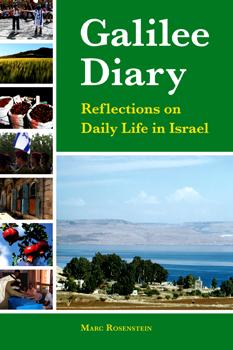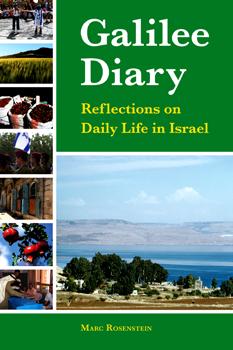3/27/13 Wednesday – Israel Connections
HTTP/1.1 200 OK Server: nginx Content-Type: text/html; charset=utf-8 X-Drupal-Cache: MISS Etag: “1364396908-0″ Content-Language: en Link: ; rel=”shortlink”,; rel=”canonical” X-Generator: Drupal 7 (https://drupal.org) Cache-Control: public, max-age=10800 Expires: Sun, 19 Nov 1978 05:00:00 GMT Vary: Cookie,Accept-Encoding Last-Modified: Wed, 27 Mar 2013 15:08:28 GMT X-AH-Environment: prod Content-Length: 94536 Date: Wed, 27 Mar 2013 15:10:27 GMT X-Varnish: 879276740 879232856 Age: 118 Via: 1.1 varnish Connection: keep-alive X-Cache: HIT X-Cache-Hits: 1 Galilee Diary: Birds Without Borders | Reform Judaism
By Rabbi Marc Rosenstein, 3/27/2013
Is it by your wisdom that the hawk grows pinions, spreads his wings to the south? Does the eagle soar at your command, building his nest high, dwelling in the rock, lodging upon the fastness of a jutting rock? (Job 39:26-28)
Yesterday as I took my morning walk around Shorashim, I was preoccupied with the pressures of the coming day–the grant request due, the lesson to teach, the study tour to prepare. After passing several of my neighbors walking their dogs, bringing in their newspapers, etc., I became conscious that they were all looking up at the sky and smiling. And indeed, there was a majestic sight overhead: the annual migration of storks from Africa to Europe was passing through. Flock after flock of the large, black and white birds made their way up the Hilazon Valley and disappeared over the ridge to the north-east. In the twenty minutes it took me to make my circuit, there was no gap in this air-train. Storks don’t fly in neat formations like geese, but alternately spiral slowly upwards like a plume of smoke, riding thermal currents, and then glide forward. The sight of this plume of birds slowly rising high into the sky, the huge birds becoming specks gleaming in the sun, is a stunning feature of the season around here, and occasionally causes gaper’s block on the highways.
My zoologist son–in–law tells me that songbirds migrate across the Mediterranean – apparently they can fly faster – but large birds like storks have to stay over land. This means that coming up from Africa they pass over Egypt, Israel, Lebanon, Syria, and Turkey enroute to their summer homes (I hope the blizzards in Europe are over by the time they get there this year). In 1993, after the Oslo Accord and the signing of a peace treaty between Israel and Jordan, the tabloids ran front page maps of the “new Middle East,” showing the driving times to various points in the region and in Europe, to which we’d soon be able to drive, along the storks’ route. After years of living on an isolated island reachable only by sea or air, there was excited anticipation of a normalization of our geography. That was then; this is now. Today, 20 years later, it’s still only the storks that can make the trip overland from Africa to Europe.
We now have a new minister of education, from a different party than the last one. Once again, I suppose, there will be a discussion of reprinting the geography books to show the eastern border of Israel in accord with the ideology of the minister’s party. It can be expensive to live in a country that can’t decide where its own borders are. The ongoing debate that has divided us, often bitterly, over the past century, over “What is a Jewish state?” has gotten no closer to resolution as a result of the recent election. Similarly, we still cannot even have a civil discussion of what would seem to be a more basic question: “Where, exactly, is the Jewish state?”
Storks know geography differently from us. They have been making the same trip for millennia, following the air currents along valleys and over mountains, oblivious to the lines we draw on our maps indicating human ownership and jurisdiction – and even to the physical fences and walls (no matter how high) we build to fortify those lines. We, being we, of course know things that storks can’t possibly know about geography. But it seems to me that they probably know things we can’t know; about freedom, for example. I wonder if they’re laughing at us from up there.
Submit a blog post
Share your voice: ReformJudaism.org accepts submissions to the blog for consideration.
HTTP/1.1 200 OK Server: nginx Content-Type: text/html; charset=utf-8 X-Drupal-Cache: MISS Etag: “1364396908-0″ Content-Language: en Link: ; rel=”shortlink”,; rel=”canonical” X-Generator: Drupal 7 (https://drupal.org) Cache-Control: public, max-age=10800 Expires: Sun, 19 Nov 1978 05:00:00 GMT Vary: Cookie,Accept-Encoding Last-Modified: Wed, 27 Mar 2013 15:08:28 GMT X-AH-Environment: prod Content-Length: 94536 Date: Wed, 27 Mar 2013 15:10:27 GMT X-Varnish: 879276740 879232856 Age: 118 Via: 1.1 varnish Connection: keep-alive X-Cache: HIT X-Cache-Hits: 1 Galilee Diary: Birds Without Borders | Reform Judaism
By Rabbi Marc Rosenstein, 3/27/2013
Is it by your wisdom that the hawk grows pinions, spreads his wings to the south? Does the eagle soar at your command, building his nest high, dwelling in the rock, lodging upon the fastness of a jutting rock? (Job 39:26-28)
Yesterday as I took my morning walk around Shorashim, I was preoccupied with the pressures of the coming day–the grant request due, the lesson to teach, the study tour to prepare. After passing several of my neighbors walking their dogs, bringing in their newspapers, etc., I became conscious that they were all looking up at the sky and smiling. And indeed, there was a majestic sight overhead: the annual migration of storks from Africa to Europe was passing through. Flock after flock of the large, black and white birds made their way up the Hilazon Valley and disappeared over the ridge to the north-east. In the twenty minutes it took me to make my circuit, there was no gap in this air-train. Storks don’t fly in neat formations like geese, but alternately spiral slowly upwards like a plume of smoke, riding thermal currents, and then glide forward. The sight of this plume of birds slowly rising high into the sky, the huge birds becoming specks gleaming in the sun, is a stunning feature of the season around here, and occasionally causes gaper’s block on the highways.
My zoologist son–in–law tells me that songbirds migrate across the Mediterranean – apparently they can fly faster – but large birds like storks have to stay over land. This means that coming up from Africa they pass over Egypt, Israel, Lebanon, Syria, and Turkey enroute to their summer homes (I hope the blizzards in Europe are over by the time they get there this year). In 1993, after the Oslo Accord and the signing of a peace treaty between Israel and Jordan, the tabloids ran front page maps of the “new Middle East,” showing the driving times to various points in the region and in Europe, to which we’d soon be able to drive, along the storks’ route. After years of living on an isolated island reachable only by sea or air, there was excited anticipation of a normalization of our geography. That was then; this is now. Today, 20 years later, it’s still only the storks that can make the trip overland from Africa to Europe.
We now have a new minister of education, from a different party than the last one. Once again, I suppose, there will be a discussion of reprinting the geography books to show the eastern border of Israel in accord with the ideology of the minister’s party. It can be expensive to live in a country that can’t decide where its own borders are. The ongoing debate that has divided us, often bitterly, over the past century, over “What is a Jewish state?” has gotten no closer to resolution as a result of the recent election. Similarly, we still cannot even have a civil discussion of what would seem to be a more basic question: “Where, exactly, is the Jewish state?”
Storks know geography differently from us. They have been making the same trip for millennia, following the air currents along valleys and over mountains, oblivious to the lines we draw on our maps indicating human ownership and jurisdiction – and even to the physical fences and walls (no matter how high) we build to fortify those lines. We, being we, of course know things that storks can’t possibly know about geography. But it seems to me that they probably know things we can’t know; about freedom, for example. I wonder if they’re laughing at us from up there.
Submit a blog post
Share your voice: ReformJudaism.org accepts submissions to the blog for consideration.




